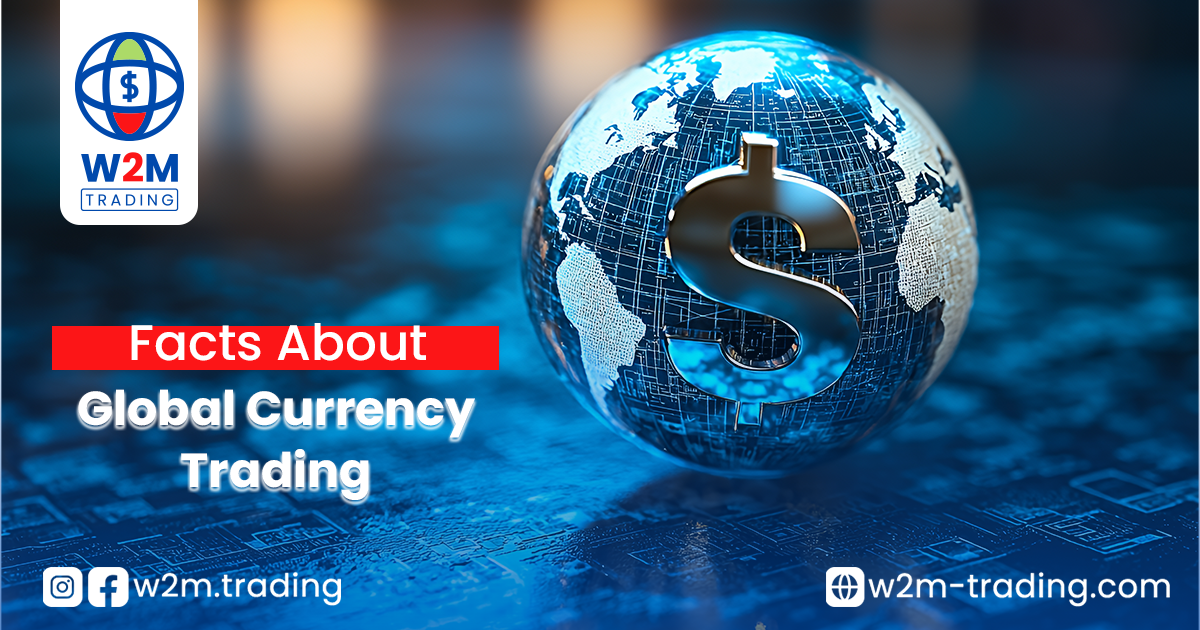- Attractive Education
- Beginner to Advance
- Flexible Timing

The forex market (Forex) is considered one of the largest financial markets in the world, with a daily trading volume exceeding $6 trillion. Forex is an attractive field for many investors, but it is important to understand how this market operates and who is responsible for the movement of currency prices.
The forex market is a global market where foreign currencies are traded. Unlike other financial markets, there is no specific location where trading takes place; rather, the process occurs through a network of banks, financial institutions, and retail traders. Currency prices (Exchange Rates) are determined by supply and demand, which causes them to fluctuate constantly.
The movement of the forex market depends on a set of key factors, which we will highlight:
Central Banks:
Central banks play a crucial role in determining exchange rates. These banks make decisions regarding monetary policies, such as raising or lowering interest rates, which in turn affect the value of the currency. When a central bank lowers interest rates, the yield on assets denominated in that currency decreases, which can lead to a decline in its value.
Economic Events:
Economic data plays a significant role in market movement. Reports such as Gross Domestic Product (GDP), unemployment rates, and inflation indicators can lead to sharp fluctuations in currency prices. If positive data is released, demand for the currency may rise; while negative data can lead to a decrease in its value.
Political News:
Political events such as elections or crises can significantly impact market movement. Political stability attracts investors, while political unrest may lead to a decline in market confidence, negatively affecting currencies.
Traders and Investors:
Market movement also depends on the actions of traders. Some rely on technical analysis, while others depend on economic news. When a large number of traders buy or sell a particular currency, it can have a significant impact on the price.
Psychological Factors:
Emotions such as fear and greed are psychological factors that influence market movement. When traders feel fear of losing their money, they may engage in panic selling, leading to a drop in prices.
Currency prices are affected by a range of economic factors, such as:
Economic Growth:
When the economy grows strongly, the demand for the currency increases, leading to a rise in its value. For example, if there is an increase in production or consumption, it reflects the health of the economy.
Inflation:
Inflation is one of the important factors that affect the value of a currency. When the inflation rate rises, the currency loses its purchasing power, resulting in a decrease in the exchange rate.
Interest Rates:
Interest rates are crucial factors in determining the attractiveness of a currency. Higher interest rates attract more foreign investments, which increases the demand for the currency and leads to a rise in its value.
To achieve success in the forex market, traders must follow certain strategies:
Technical Analysis:
This relies on studying charts and historical market data. Indicators such as Moving Averages and the Relative Strength Index are used to predict price trends. Technical analysis helps traders make informed decisions.
Fundamental Analysis:
This involves studying economic and political factors and their impact on currency prices. Traders should keep up with economic news and important reports to understand the global economic situation.
Risk Management:
Risk management is a fundamental part of a trading strategy. Traders should determine the level of risk they can tolerate and use Stop-Loss Orders to protect their capital. This helps reduce potential losses.
Setting Goals:
Traders should have clear objectives. Setting short-term and long-term goals helps achieve positive results and reduces emotional decision-making.
We can summarize all of the above in a few key words:
The forex market is a field full of opportunities, but it requires a deep understanding of the factors influencing market movements. By applying effective trading strategies and understanding economic and psychological fundamentals, traders can achieve success in this dynamic market. Remember that trading is not just a game of chance; it is a science that requires knowledge, planning, and discipline.
In conclusion, if you wish to enter the world of forex, make sure you are equipped with the knowledge and skills necessary for success. Be prepared to face challenges, rely on reliable strategies, and learn from every experience you encounter in this exciting field.
You can learn more about candlestick patterns interactively through HERE
You can also follow everything related to trading through the educational series on trading in the foreign exchange market on the YouTube channel THROUGH HERE
This site is protected by reCAPTCHA and the Google
Privacy Policy and
Terms of Service apply.